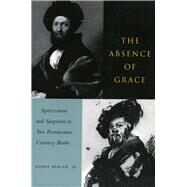The Absence of Grace
, by Berger, Harry, Jr.- ISBN: 9780804739054 | 0804739056
- Cover: Paperback
- Copyright: 10/1/2000
The Absence of Graceis a study of male fantasy, representation anxiety, and narratorial authority in two sixteenth-century books, Baldassare Castiglione'sIl libro del Cortegiano(1528) and Giovanni Della Casa'sGalateo(1558). The interpretive method is a form of close reading the author describes as reconstructed old New Criticism, that is, close reading conditioned by an interest in and analysis of the historical changes reflected in the text. The book focuses on the way theCourtierandGalateocope with and represent the interaction between changes of elite culture and the changing construction of masculine identity in early modern Europe. More specifically, it connects questions of male fantasy and masculine identity to questions about the authority and reliability of narrators, and shows how these questions surface in narratorial attitudes toward socioeconomic rank or class, political power, and gender. The book is in three parts. Part One examines a distinction and correlation theCourtierestablishes between two key terms, (1)sprezzatura,defined as a behavioral skill intended to simulate the attributes of (2)grazia,understood as the grace and privileges of noble birth. Becausesprezzaturais negatively conceptualized as the absence of grace it generates anxiety and suspicion in performers and observers alike. In order to suggest how the binary opposition between these terms affected the discourse of manners, the author singles out the titular episode ofGalateo,an anecdote about table manners, which he reads closely and then sets in its historical perspective. Part Two takes up the question ofsprezzaturain the gender debate that develops in Book 3 of theCourtier,and Part Three explores in detail the characterization of the two narrators in theCourtierandGalateo,who are represented as unreliable and an object of parody or critique.







